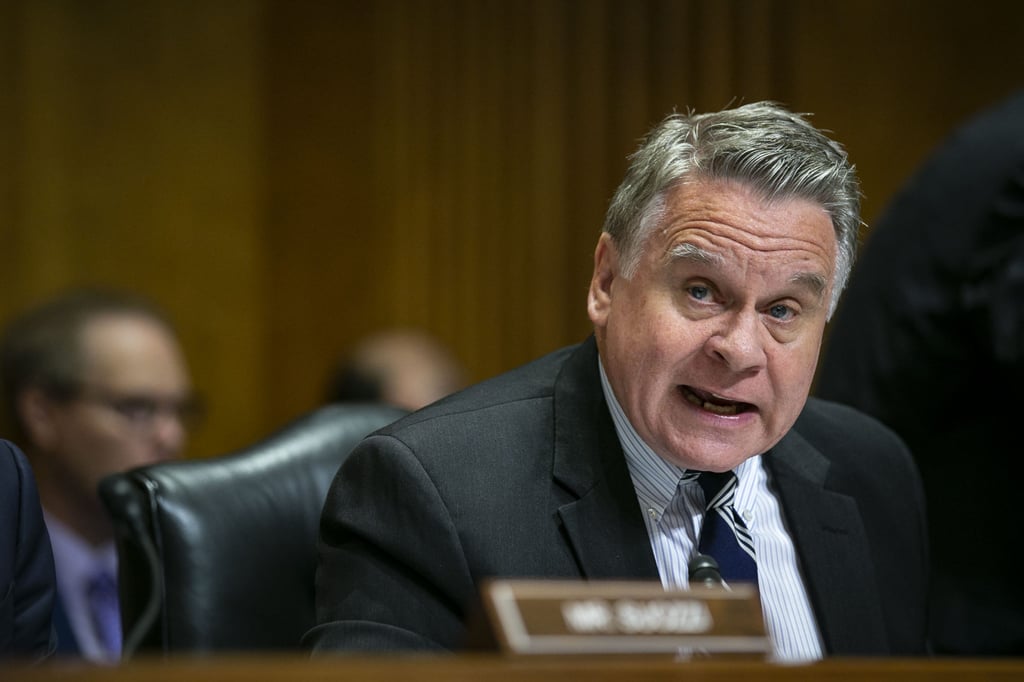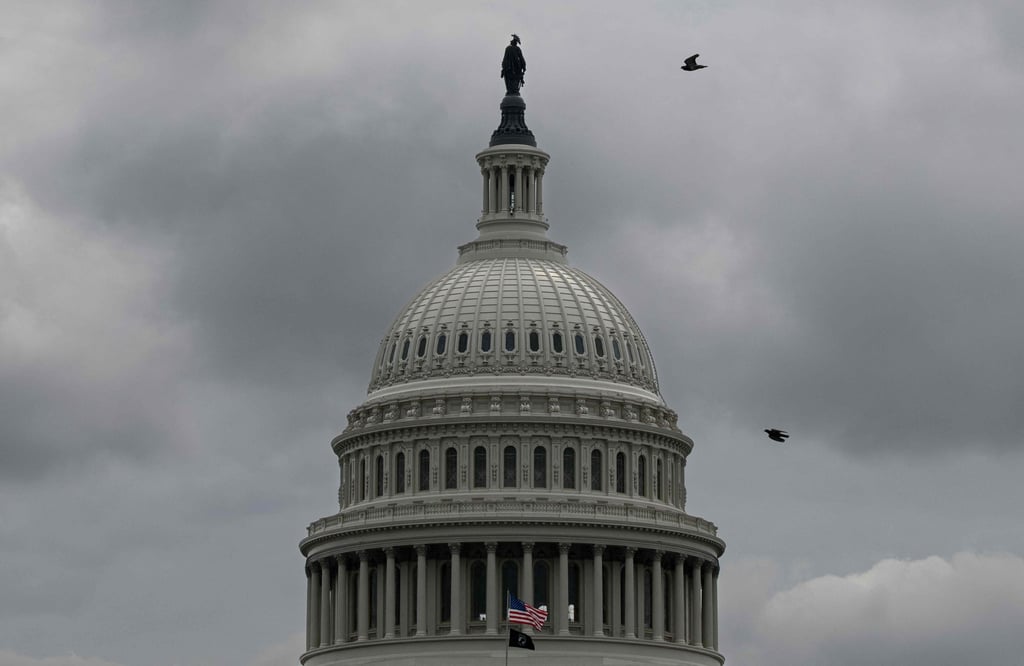China may preoccupy US lawmakers and staff, but few travel there now

“Congressional staffers are perhaps the most important cog in the machine because they’re the ones that, more often than not, help to draft the scope of legislation, and help to flesh out the issues for their members who may not be experts on the issue and may rely on them,” said Ilan Berman of the American Foreign Policy Council, a conservative Washington-based think tank.
Unlike trips made by lawmakers, staff travel is lower-profile and allows participants to engage on a more granular level.
Berman, recently returned from leading congressional staff to the mainland, believed the dynamic held unique value, observing: “When you have members of Congress, the engagements become much more pro forma, much more performative.”
Even five years ago, China travel was considered unexceptional. Combining official visits and privately financed trips listed on Legistorm, a congressional transparency website, at least 27 staff and 15 lawmakers paid visits to the mainland in 2019 alone.
(Most countries, including the US, do not recognise Taiwan as an independent state, but Washington is opposed to any attempt to take the island by force and is committed to supplying it with weapons.)
The dearth of travel is striking, for it underscores the adversarial tone of a number of China-related legislation pending in Washington.

Some observers attribute the decline in visits, at least in part, to China’s actions.
In retaliation for US sanctions, Beijing in recent years has sanctioned several lawmakers, such as Democratic congressman Jim McGovern of Massachusetts, Republican congressman Chris Smith of New Jersey, and Republican senators Tom Cotton of Arkansas, Ted Cruz of Texas, Josh Hawley of Missouri, and Marco Rubio of Florida.
US congressional staff usually escape scrutiny. But in 2021 Beijing banned then-House Appropriations Committee aide Jon Stivers, who had previously served as the CECC’s staff director. In 2022, Beijing sanctioned Todd Stein, now CECC deputy staff director.

A commission spokesperson told the Post “there are no plans in place for the CECC staff to visit mainland China and Hong Kong before the end of the year unless the PRC agrees to Representative Smith’s request for an unhindered visit to the Xinjiang Uygur autonomous region”.
The USCC said in a statement that its staff would consider travel to China in the future, without elaborating why it did not this congressional session. The House select committee on China did not immediately respond to a request for comment.
In 2020, then-US secretary of state Mike Pompeo announced the termination of five programmes that had enabled Beijing to fund travel for American lawmakers and congressional staff.
Pompeo said the trips focused primarily on engagement with CCP officials rather than Chinese people. He called the programmes “soft-power propaganda tools” that were “not mutually beneficial”.
The State Department did not immediately respond to a query about its current stance on MECEA trips to China.
MECEA organisers stress that the trips, all funded by foreign governments, provide US government staff with valuable global insights at no expense to American taxpayers.
The itineraries often incorporate discussions with officials as well as excursions to historical and cultural sites. At one point, China was the biggest sponsor of the visits.
American groups routinely partner with Chinese counterparts to ease access to actors on the ground. MECEA trips facilitated by the NCUSCR normally entailed American China experts travelling with congressional staff, meetings with government and non-government actors on the mainland and significant NCUSCR input on the itinerary.
Bissett sees immense value in the visits, noting they often mark congressional aides’ first trips to China, but said their cost made them tough to sustain without Chinese government funding.
The current political climate around China and a lack of political will had made arranging congressional trips difficult, she added.
Undeterred, the American Foreign Policy Council raised money from US donors and set up two week-long visits over the past year in which a total of five congressional staff – two Democrats and three Republicans – joined China experts like Joshua Eisenman of the University of Notre Dame.
“An intensive trip of that length allows for more in-depth discussion on topics than some of the meetings that take place or don’t take place in [Washington] DC,” he said. “The whole concept of strategic empathy requires actually understanding the other side.”

As for organisers, they viewed the visits as opportunities to let staff glimpse China for themselves – good, bad or otherwise – rather than imposing a specific view.
Beijing is under no illusion that these trips will lead to immediate positive outcomes, they say.
“There is maybe hope that if enough people come to China and see it for themselves, that perhaps in the long run, that could have some sort of benefit,” said Bissett.
In a statement to the Post, Liu Pengyu, spokesperson for the Chinese embassy in Washington, said China had always welcomed congressional aides and members and that Washington was largely responsible for the dearth of legislative engagement.
“China recognises the great importance of the US Congress in American political life,” Liu said. “Congressional members and aides are welcome to visit China to experience a true, three-dimensional and comprehensive China.”
Berman of the American Foreign Policy Council said going to China was vital because the country has become increasingly closed off and Sino-American relations are at risk of devolving into accidental conflict.
“When you have a relationship that’s going well, this sort of thing is not necessary,” he explained. “When you have a fraught relationship, trips like these create a level of granularity or expertise that helps both sides avoid miscalculation.”
Berman’s think tank will continue booking travel to China, he added, as long as it could serve American interests.
“That there’s such a small number of trips right now is a testament to the fact that we may have entered the era of diminishing returns.”
Related
Canada says too little, too late as Trump flip-flops on…
Nadine Yousif and Ali Abbas AhmadiBBC News, TorontoWatch: Canadian liquor store clears out US alcohol in response to tariffsNot long after the US imposed their
Vietnam, Thailand, and Philippines Among Top Asian Destinations Most-Searched by…
Home » Philippines Travel News » Vietnam, Thailand, and Philippines Among Top Asian Destinations Most-Searched by American Travelers, Driven by Surge in Viet
Trump tariffs tarnish ties: Americans anxious about travel to Canada…
Will Trump's tariffs on Canadian goods entering the U.S. affect tourism at home, tarnishing ties Canadians and Americans have shared for decades? It's a fair qu
Looming Trump travel ban strikes fear in Afghans who worked…
Expectations that President Donald Trump will soon bar Afghans and Pakistanis from entering the United States has set off panic among Afghans who were promised











